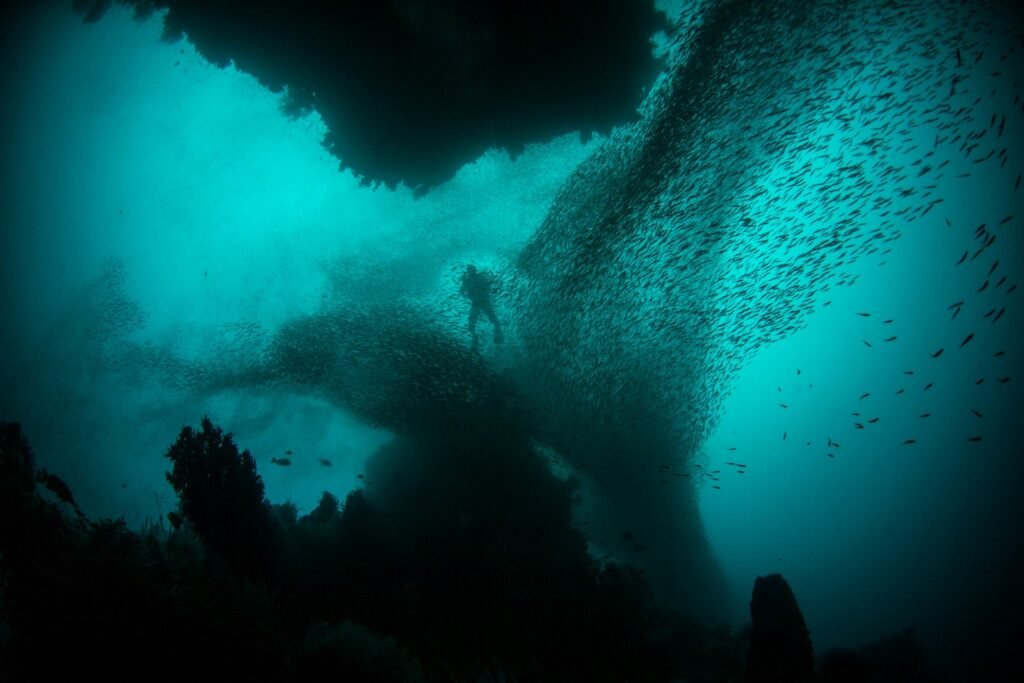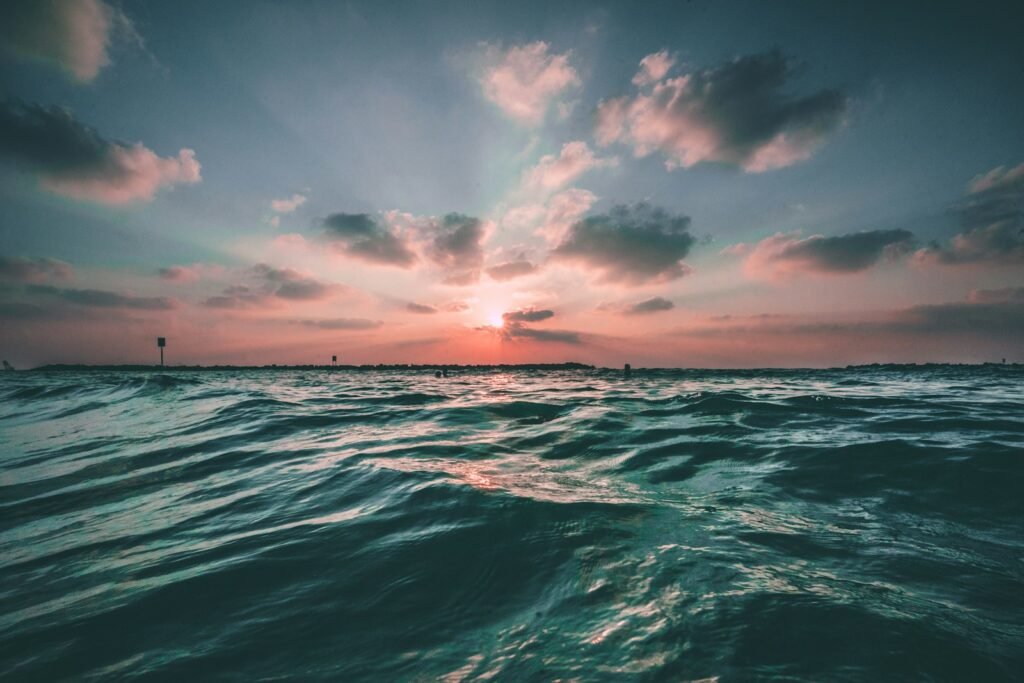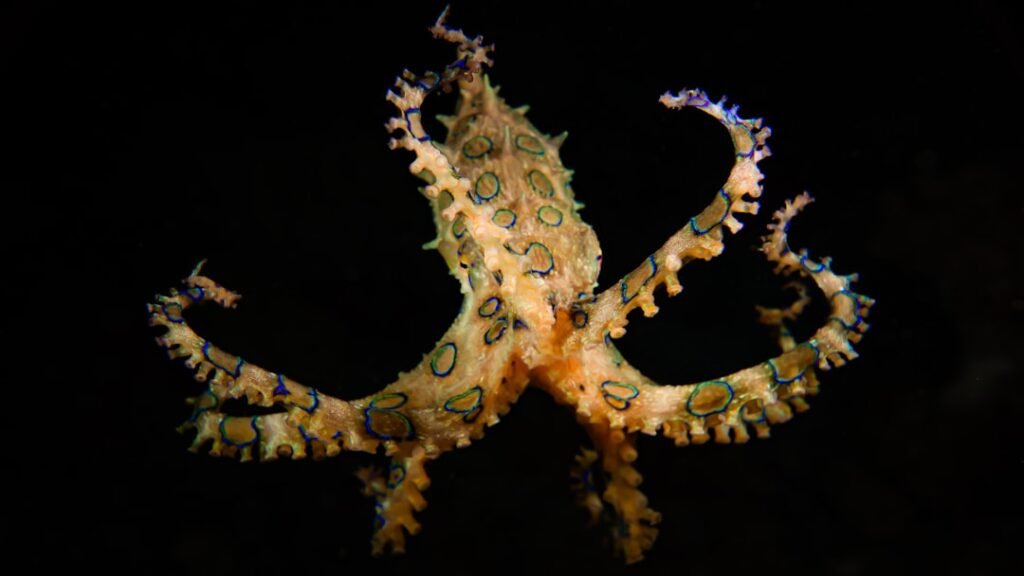Earth’s silent regulator in heat absorption, oxygen generation, and life sustaining action has always been the ocean. But under the waves something concerning is occurring: sunlight is disappearing. According to a new study, over the past two decades, 21% of the surface waters of the ocean have darkened; some areas have lost light penetration over more than 100 meters. This phenomena known as ocean darkening is changing marine ecosystems in ways we are only starting to grasp and the effects could be felt far beyond the sea.
The Vanishing Light: A Global Shift

Sunlight doesn’t just illuminate the ocean it powers it. Phytoplankton, the microscopic plants responsible for half of Earth’s oxygen, rely on sunlight for photosynthesis. Coral reefs, fish migrations, and even the planet’s carbon cycle are all governed by light. Yet in vast stretches of the ocean, that light is disappearing.
- 9% of the ocean has seen sunlight fade 50 metres shallower in an area roughly the size of Africa.
- 2.6% has darkened by over 100 metres, effectively plunging ecosystems into twilight.
- The Great Barrier Reef, already stressed by warming, now faces reduced light for its symbiotic algae, worsening bleaching risks .
This isn’t just an ecological concern, it’s a planetary one.
What’s Stealing the Ocean’s Light?
Scientists point to three key culprits:
1. Algal Blooms: A Double-Edged Sword
Driven by agricultural runoff and warming oceans, massive algae blooms resemble a marine blackout curtain. While phytoplankton are vital, overgrown blooms:
- Block sunlight from getting to farther-off seas.
- Broken into oxygen-depleting “dead zones,” akin to the 6,705-square-mile dead zone in the Gulf of Mexico.
2. Warmer, More Layered Waters
Rising ocean surface temperatures brought on by climate change are producing a stratified “lid” that traps plankton and particles near the top. this:
- Keeps organic matter suspended where it scatters light, so reducing mixing.
- Disturbs nutrient cycles, starving more deeply established ecosystems.
3. Artificial Light Pollution
Artificial light flooding coastal cities and offshore rigs disturbs natural cycles in the water. Species that depend on daily migrations (like zooplankton) or moonlight for spawning—like coral are thrown into anarchy.
Why This Terrifies Scientists
1. Phytoplankton Collapse = Less Oxygen
Phytoplankton contribute every second breath we take. Darker waters mean:
- Fewer phytoplankton, weakening the ocean’s ability to absorb CO₂.
- A potential domino effect on fisheries, as krill and small fish lose their food source.
2. Coral Reefs on the Brink
Corals already face bleaching from heat. Now, darkening adds another stressor:
- To survive, their symbiotic algae zooxanthellae need light.
- Reefs might thus drop faster than expected without it.
3. A Weaker Carbon Sink
Thirty percent of human-emitted CO26 is absorbed by the ocean. darkening could:
- Cut carbon sequestration as phytoplankton output declines.
- In a dangerous feedback loop, quicken global warming.
The Unseen Crisis: Why No One’s Talking About It

Unlike melting glaciers or plastic-filled beaches, ocean darkening is invisible to the naked eye. Satellite sensors struggle to measure subsurface changes, and funding for deep-ocean monitoring remains scarce. As Dr. Thomas Davies warns:
“This is a slow, creeping disaster. By the time we see mass die-offs, it may be too late.”
What Needs to Happen Now
- Expand Monitoring: Track light penetration with more ARGO floats and sensors.
- Cut nutrient pollution from agricultural runoff to help to prevent algal blooms.
- Control artificial light by implementing “marine dark sky” rules close to sensitive areas.
- Include darkening into Climate Models: IPCC projections have to consider this.
Final Thought: The Ocean’s Silent Scream

The ocean doesn’t scream. It darkens. Slowly, silently, and with consequences we’re only beginning to grasp. If we ignore this, we risk unraveling the very systems that keep our planet habitable. The question isn’t whether we’ll act, it’s whether we’ll act in time.
Read the study. Share the findings. Demand action. The ocean’s light and our future depend on it.
Sources:

Jan loves Wildlife and Animals and is one of the founders of Animals Around The Globe. He holds an MSc in Finance & Economics and is a passionate PADI Open Water Diver. His favorite animals are Mountain Gorillas, Tigers, and Great White Sharks. He lived in South Africa, Germany, the USA, Ireland, Italy, China, and Australia. Before AATG, Jan worked for Google, Axel Springer, BMW and others.




